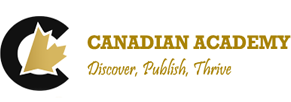This study explores challenges encountered by school principals outside the Western world in implementing instructional supervision practices to enhance teaching and learning. Conducted with 57 principals and teachers from secondary schools, qualitative analysis revealed four major barriers: insufficient supervisory skills and content knowledge, negative attitudes towards supervision, the desire to maintain a familial school atmosphere, and time constraints due to heavy workloads. The findings suggest implications for policy and practice in centralized educational contexts.
Educational scholars widely acknowledge that teaching significantly impacts student learning outcomes. In response to external pressures for accountability, policymakers globally prioritize effective policies to enhance teachers’ professional development and classroom practices. Recent research underscores the importance of instructional leadership, particularly supervision of teaching, in fostering teacher learning and practice. Principals play a pivotal role by conducting classroom observations, facilitating communication on instructional matters, and supporting teacher development. However, gaps exist in understanding how cultural contexts shape principals’ ability to implement instructional supervision effectively, especially in non-Western nations like Turkey. Addressing these gaps is crucial for informing policy initiatives and improving educational practices. This study aims to shed light on the challenges faced by school principals in implementing instructional supervision practices, particularly in non-Western, centrally governed educational systems like Turkey’s, thus contributing to the broader international literature on educational leadership and policy.
Turkey has a centralized education system overseen by the Ministry of National Education (MoNE), which handles key functions like teacher appointments, budgeting, and curriculum design. School principals, chosen through MoNE exams, manage schools without specific training. Recent reforms aim to enhance teaching quality, notably by empowering principals in instructional supervision. Previously, national inspectors evaluated teachers sporadically, but this shifted to principals conducting ongoing observations from 2014 onwards. The 2023 Education Vision emphasizes principals’ instructional leadership, prompting professional development programs focusing on instructional supervision skills. However, research suggests challenges to effective supervision. These findings can aid policymakers and practitioners in Turkey and similar educational contexts in addressing barriers to effective instructional supervision.
Instructional leadership, rooted in the effective school movement, underscores the pivotal role of school principals in enhancing teaching and learning, particularly in disadvantaged districts. Principals shape teaching practices through articulating school missions, providing feedback, managing programs, and fostering positive environments. They face increasing pressure to supervise instruction effectively, given rising expectations and accountability demands. Various models for instructional supervision aim to enhance teachers’ professional growth by facilitating collaboration and decision-making. However, barriers hinder principals’ implementation of effective supervision. Time constraints, bureaucratic perceptions, and inadequate training impede their ability to support teacher development. Additionally, lacking content knowledge may compromise feedback quality. Concerns about bias, coercion, and privacy invasion further hinder effective supervision. Moreover, strained interpersonal relationships between principals and teachers exacerbate these challenges. Addressing these barriers is crucial for fostering a culture of continuous improvement and enhancing teaching quality in schools.
This study delved into the impediments facing school principals in effectively supervising instruction, drawing insights from both principals and teachers. Four primary barriers emerged: inadequate supervisory skills and knowledge, negative attitudes towards supervision, maintaining a familial school atmosphere, and heavy workloads with time constraints. Principals’ lack of supervisory skills, as evidenced in existing literature, hampers the effectiveness of instructional supervision. Moreover, a deficiency in content knowledge shifts focus away from providing meaningful feedback to teachers. Viewing supervision bureaucratically rather than as a tool for professional development also hinders its efficacy. Teachers perceive indirect supervision methods as more practical, though direct observation and feedback are deemed essential for improvement. Unfair treatment during supervision and a lack of trust in principals further obstruct effective supervision, highlighting the importance of a trusting school environment. Principals’ reluctance to disrupt warm relationships with teachers limits classroom observations. Time constraints and heavy workloads, exacerbated by bureaucratic demands, impede principals from prioritizing instructional supervision. In sum, addressing these barriers is crucial for enhancing instructional supervision’s efficacy and fostering teacher professional development.
This study offers important insights for policy and practice in education. It suggests that policymakers in countries like Turkey should prioritize professional development for school leaders, focusing on mentorship and coaching to enhance instructional supervision. Giving principals more autonomy can help streamline administrative tasks, allowing them to concentrate on supervising teaching effectively. Additionally, principals should encourage teacher involvement in school leadership activities to foster school improvement. Implementing structures like teacher committees and teams can enhance supervision of teaching practices. Different supervision models, like the developmental approach, may address concerns about damaging teacher relationships. Creating a culture of feedback and collaboration among teachers further promotes effective instructional supervision. Finally, adopting the “post-holing” approach can facilitate in-depth exploration of teaching practices for better supervision.
Source:
(2024) Barriers to school principals’ effective instructional supervision practices: evidence from a centralised educational context, Educational Studies, DOI: 10.1080/03055698.2024.2322942
 Canadian Academy Discover, Publish, Thrive
Canadian Academy Discover, Publish, Thrive